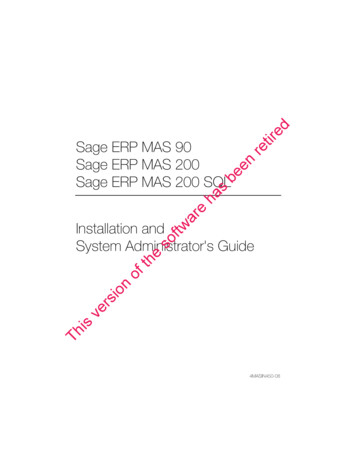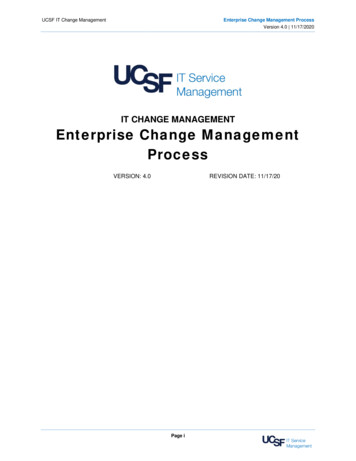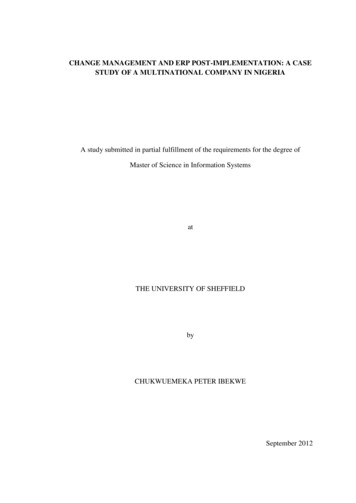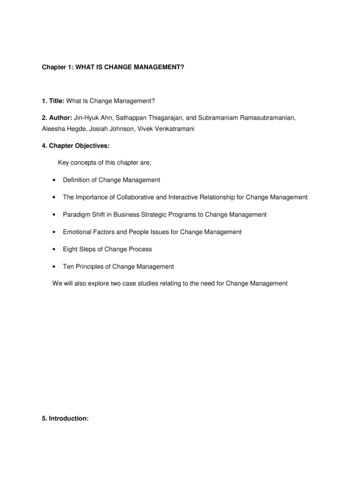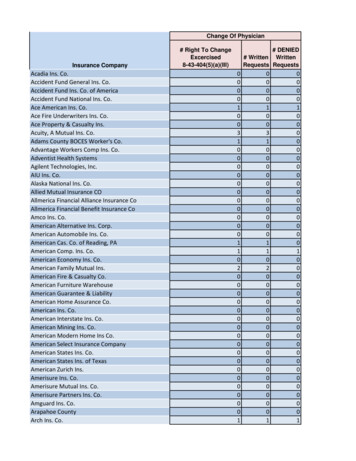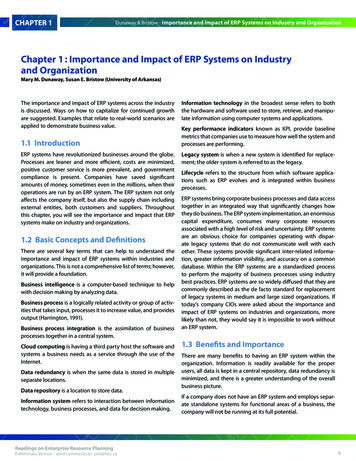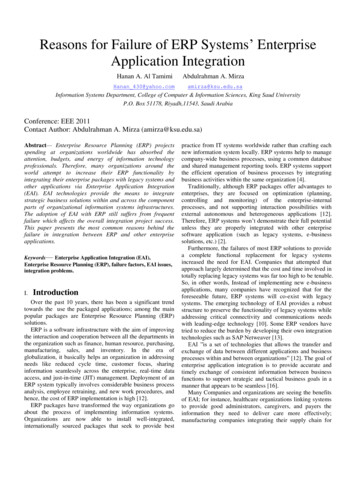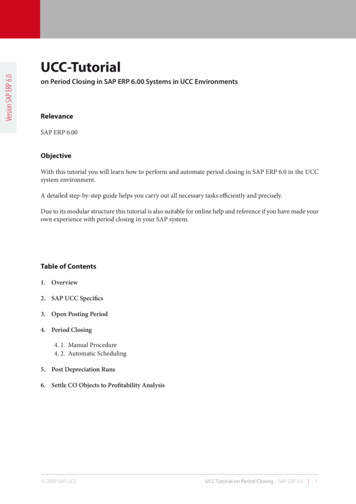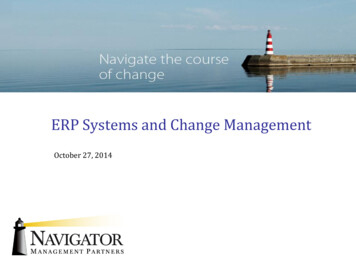
Transcription
ERP Systems and Change ManagementOctober 27, 2014
Objectives and WelcomeWhat’s In It For You (WIIFM)? Recognize characteristics of ERP systems and whyorganizations want them Understand project failure rate and success factors Distinguish between ERP stakeholder groups Describe Human Resource challenges associated with ERPs Realize what technical system implementations will look likein the next five years2
Putting It All TogetherThink about everything you’ve learned so far and apply it!OrganizationalStrategy andAlignmentPlanned vs.Unplanned ChangeChampions, ChangeAgents andStakeholdersCM TalentManagementHR 3
ERP Primer Why organizations want them Why organizations hate them4
DiscussionWhy do you thinkthe ERPsin your readingsfor todayREALLY failed?5
Project Failure RateSo, how common is failure really?!IBMJohn KotterMcKinsey6
What Constitutes A Failure?ERP implementations that were labeled a failure may have Not realized the promised ROI Significantly extended the implementation schedule Run significantly over budget Slowed productivity to a crawl pace Stopped production Made it impossible to deliver orders to customers7
Reasons for ERP FailuresTwelve major reasons why ERPs fail* 1.Lack of Top ManagementCommitment7.Misfit of Application Softwarewith Business Processes2.Inadequate RequirementsDefinition8.Unrealistic Expectation ofBenefits and ROI3.Poor ERP Package Selection9.4.Inadequate ResourcesInadequate Training andEducation10. Poor Project Design andManagement5. Resistance to Change/ Lack ofBuy-In6.11. Poor CommunicationsMiscalculation of Time andEffort12. Ill-Advised Cost Cutting8*According to Softpanorama
Success FactorsWhat are the critical success factors for implementing ange9LarkinandLarkin
Success FactorsProsciSuccessfulChangeTop seven contributors to a successful changeinitiative include 1. Active and visible executive sponsorship2. Structured change management approach3. Dedicated change management resourcesand funding4. Frequent and open communication aboutthe change5. Employee engagement and participation6. Engagement and integration with projectmanagement7. Engagement with and support from middle*Prosci 2014 Benchmarking Reportmanagement10
ERP RolesMany groups have an interest in an ERP implementation ImpactedBusinessUnitsExternal Stakeholders11
ERP RolesEach group has individuals who will experience change takeholders12
HR and ERP - Parallel UniversesERPs benefit from having a partner relationship with HR ERP ProjectStartDuring ERPProject13Post ERPProject
DiscussionWhat do you think is the biggestchallenge HR faces during anERP implementation?14
Technology TrendsFive years from now An ERP for every company?” is it practical to get to a single instance across all functions of a verylarge, global enterprise? No. That's not a realistic goal any more.We're living in a world where multiple systems have to be networkedtogether, have to communicate openly with each other and need to havesophisticated enough infrastructures on top so that the business canmanage it."The "more evolved" thinking Companies can achieve consistencies andefficiencies in their business processes without having to use onesingular system that manages the entire landscape.”Philip Say, Vice President for SAP Business Suite15
DiscussionWhat else to you want to know?16
For Further ExplorationProsci - http://www.prosci.com/Kotter’s Eight Step Process for Leading p-process-for-leading-change/Conner Partners - hite-papersAdditional ERP Disasters Information tale/2100-1017 3-253829.html look-at-waste-managements-case-againstsap/8338 n.htmlProject Failure Statistics and Causes http://www.softpanorama.org/Skeptics/IT skeptic/erp skeptic.shtml facts-and-reasons/ http://blogs.gartner.com/mark -particularly-in-it/ lish-the-70-change-failure-rate-statistic/Future of ERPs e-of-cloud-erp-is-now/ ml17
Recognize characteristics of ERP systems and why organizations want them . Significantly extended the implementation schedule Run significantly over budget Slowed productivity to a crawl pace Stopped production Made it impossible to deliver orders to customers . Reasons for ERP Failures 8 Twelve major reasons why RPs fail* 1. Lack of Top Management Commitment 2 .
